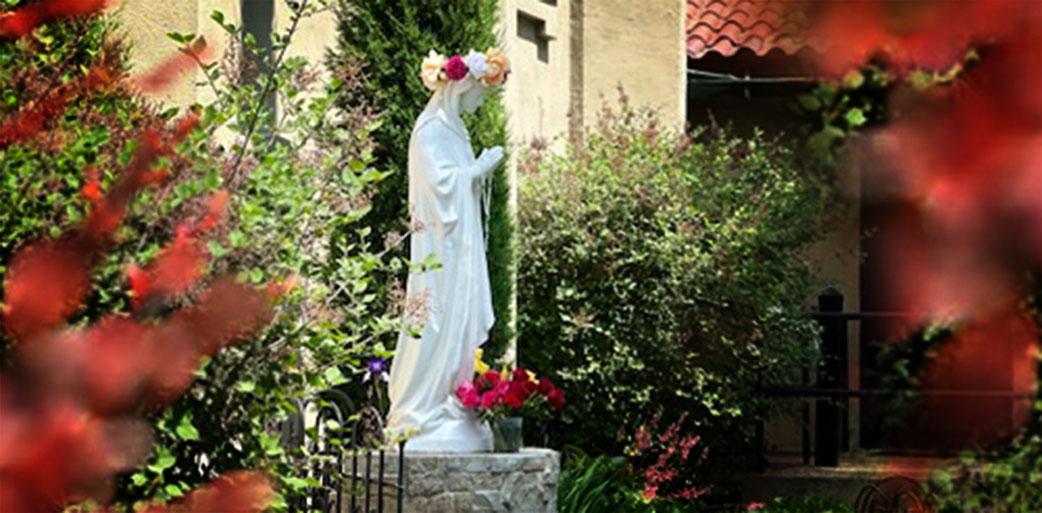Dear Friends,
During this month of May when the Church encourages us to reflect on and give honor to Mary, I would like to draw your attention to Mary’s prayer. This prayer, the Magnificat, was prayed by Mary during her encounter with Elizabeth. She recently had a visit from an angel and, filled with new life by the power of the Holy Spirit, she sings about her own state in life and the power of God working in her and throughout history. This prayer is still prayed by so many people because of its power and beauty. It is prayed daily as part of Evening Prayer in the Liturgy of the Hours.
Mary’s prayer is part of a long tradition in Jewish history of women singing songs of praise and lament, from Miriam after the exodus from Egypt to Hannah and Judith. Mary’s song is very similar to the one sang by Hannah in the book of Samuel.
The Magnificat begins with a poor woman’s cry of joy. Her soul is rejoicing in God, her Savior. She rejoices because she is well aware of the suffering and struggle in her own life and in the lives of so many other women. Into that struggle she sees the activity of God. She senses the divine presence offering compassionate care for those who suffer. She is able to see and hear what others cannot, that despite the turmoil in the world, God is leading people to life.
She describes herself as lowly and that God has looked with favor on that lowliness. The scholars say that the word for lowliness, tapeinosis in Greek, describes misery, pain, persecution and oppression. In the Old Testament, it is this word that describes the state of Hagar, Abraham’s servant girl who bears him the child Ishmael. It also describes the state of the Israelite community under slavery in Egypt. Mary’s description of herself is not just humility but is based upon her actual social position as a young woman who is a member of a people conquered by Rome. She has little power to change her state in life. She will need others to survive. She has no value in the eyes of the powerful in the world. Yet it is to just such a woman that the call has come to partner with God in the great work of redemption, of creating the Kingdom of God.
Our God often chooses unconventional people for tasks. That is what makes it so radical. The all-powerful one has chosen to put the future of humankind in the hands and heart of this lowly teenage girl. Just such a girl will mother the Messiah.
When we pray that prayer with Mary we should come to understand that despite our own lowliness God has a powerful desire to do great things for us too. All we need is faith, trusting in God like Mary does. Then we will be caught up in the activity of God – kindness, mercy, justice…
In the second half of Mary’s Magnificat, she moves from the activity of God in her life to what God has done throughout history. God, in her song, is the one who disturbs the order in the world: scattered the proud, pulled down the mighty, exalted the lowly, filled the hungry, sent the rich away empty. God remembers the promise made. God fulfills that promise.
During this month of May, join Mary in her song and know that God has something amazing in store for you. You are not too lowly to do great things.
Peace,
Fr. Damian



